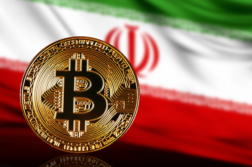The Iranian government has continued its adversarial actions against Telegram by criminalizing the use of Gram, the native token of the encrypted messaging app’s new blockchain.
According to the Tehran Times, Iran’s Secretary of Criminal Content Definition Task Force, Javad Javidnia, has issued a warning saying that any support offered to the coin would constitute a breach of national security as it could potentially disrupt the country’s economy. Javidnia reiterated that protecting the local economy was behind the move to ban Telegram last year:
One of the most important factors in banning Telegram was a sense of serious economic threat from its activities, which was unfortunately marginalized and neglected due to the fuss in the political atmosphere of the country.
Telegram Ban
The ban on Telegram came into force more than seven months ago with the order being issued by the judiciary. This was after the encrypted messaging app was accused of causing widespread unrest in the Islamic republic.
Iran Government Bans Telegram, Accuses App of Causing Widespread Unrest https://t.co/u29p6RsjMX
— CCN.com (@CryptoCoinsNews) May 1, 2018
The move to ban the encrypted messaging app followed calls by government officials to have Telegram prohibited in the country. Then the argument of undermining the economy was also made by the secretary of Iran’s High Council for Cyberspace, Hassan Firouzabadi.
At the time, Telegram was the most popular social network in Iran by user numbers as it boasted of approximately 40 million members in the country and this was nearly 50% of the population. Specifically, Firouzbadi warned that Gram would undermine the Iranian rial and lead to capital outflows of up to US$50 billion and this was after Telegram’s initial coin offering which had raised at least US$1.7 billion in the pre-sale:
Telegram is not a dominant messenger in any country except for Iran. Telegram has officially announced that it will be used as an economic platform, and Telegram will undermine the national currency of Iran.
Executive Decree
The Telegram ban in May 2018 also coincided with a presidential directive which prohibited civil servants from using messenger apps originating from foreign countries with the Supreme Leader of Iran, Ayatollah Ali Khamenei, as well as the president, Hassan Rouhani, going ahead to quit the messaging service. Though Telegram has never revealed where its offices are located (as a way to avoid data requests by governments), it is registered in both England and the United States.
Prior to the ban by Iran’s judiciary, Telegram had previously been temporarily banned by the executive arm of the Iranian government following protests that rocked various cities in the country. Then, the app was accused of assisting in organizing the protests.
Featured Image from Shutterstock
We are hiring full-time and part-time journalists based in the United States. Ideal candidates will have extensive knowledge of traditional markets and/or the cryptocurrency industry. Apply for a position here.








